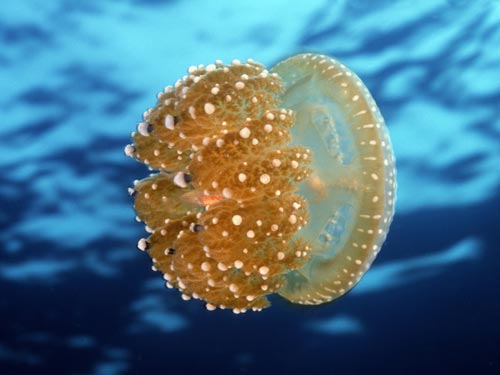8 signs of nature are
The poster of the polar bear trying to cling to the iceberg has become old with global warming. There are many other subtle signs that the animal kingdom is being degraded by human intervention.
A few recent examples:
1. Earlier migration : A few birds are pushing early on their annual migration north, when the US east coast heats up, according to a new study published by Global Change Biology. This report reaffirms studies from 2006. Earlier migration does not sound terrible, but scientists warn that distant animals originated in South America, so they will lack information. news about spring time in the northern hemisphere, and it will be difficult to adapt to climate change (such as lack of food or time difference).
2. Jellyfish rule : A global outbreak of jellyfish has caused this tapering creature to hitchhike on ships traveling around the world. In fact, studies show that about a quarter of marine species on international ports are strange creatures that have been migrated from elsewhere, due to human dispersal support.

The discovered Phyllorhiza punctata jellyfish in Australia invaded the Gulf of Mexico.
(Photo: LiveScience)
3. Contaminated food chain : Scientists last month found toxic pollutants in nine molluscs in the deep sea. There are at least two substances banned from use are DDT and PCBs. Scientists say it reinforces the notion that pollutants have found deep access to marine food chains.
4. Devouring on 'highlands' . 30 species of reptiles and amphibians have moved to live in colder climates as the earth warms, causing mercury to rise. We can see the extinction phenomenon spreading from 2050 to 2100, scientists say, because eventually "all high lands" will be exhausted.
5. Penguins in danger . The rapid decline in the population of penguins is due to their face of oil pollution, the rapid development of coastal people and the destruction of fishermen. "Penguins are among the species that show us how we have changed our world."
6. Transition of marine life forms : Scientists have seen a significant shift in the composition of coastal marine organisms, caused in part by changes in ocean and magnetic temperatures. vertebrates (fish) to invertebrate species (crab, squid, lobster) as well as bottom-feeding species have moved to feed on higher floors. Meanwhile, warm water species have replaced cold water species in populations.
7. Migrating parasites : Often found in southwestern England, Angiostronglyus vasorum parasites, migrated north due to rising temperatures. They were found on dogs and many other animals living in Scotland.
8. Lack of food : Animals that eat plants in highly seasonal environments such as the Arctic are struggling to feed themselves, because the weather is warmer, making their food bloom before they reach them. that food yard.
- Signs that you are pregnant
- The raging worms, signs of environmental pollution
- How did my father avoid the storm in the past?
- 5 natural foreboding before the disaster
- 6 warning signs when the human body is near death
- 8 signs of appendicitis pain
- Found many signs of life on Mars
- Building Vietnam Nature Museum
- Lazy is hereditary
- Office people pay attention! When you see these signs you may be suffering from hemorrhoids
- Be overwhelmed by the sheer power of nature
- Signs of stress
 Animal 'suffering' after hibernation
Animal 'suffering' after hibernation Why do goats climb well?
Why do goats climb well? Scientists were surprised to see chimpanzees eating turtles
Scientists were surprised to see chimpanzees eating turtles Giant catfish died deadly due to drought in Thailand
Giant catfish died deadly due to drought in Thailand Four new species appear as 'hybrids' of extraterrestrial creatures
Four new species appear as 'hybrids' of extraterrestrial creatures  Strange species in Southeast Asia becomes the first marine fish species 'extinct due to humans'
Strange species in Southeast Asia becomes the first marine fish species 'extinct due to humans'  Ancient humans may still live on Indonesia's Flores island
Ancient humans may still live on Indonesia's Flores island  The 'dragon' species that was thought to only exist in myths is one of the rarest on the planet.
The 'dragon' species that was thought to only exist in myths is one of the rarest on the planet.  How many animals have ever existed on Earth?
How many animals have ever existed on Earth?  Treasure of Southeast Asia: Rare animal species found in only 9 countries in the world, Vietnam just received good news!
Treasure of Southeast Asia: Rare animal species found in only 9 countries in the world, Vietnam just received good news! 